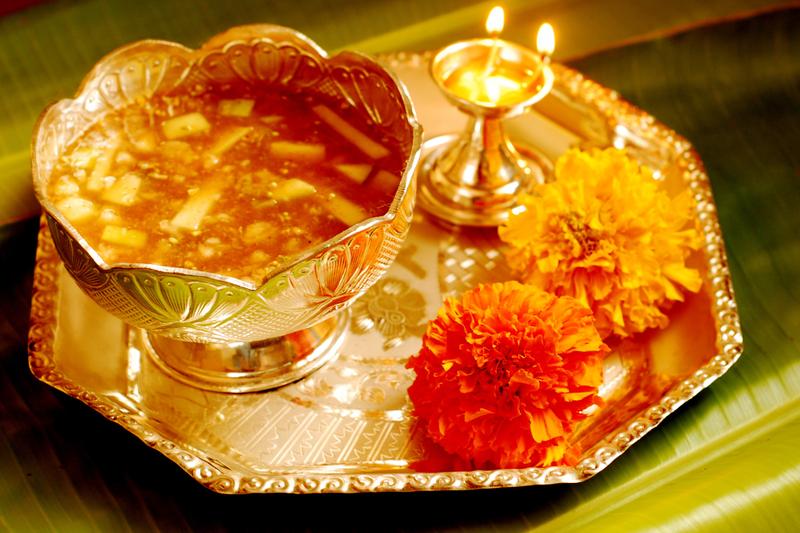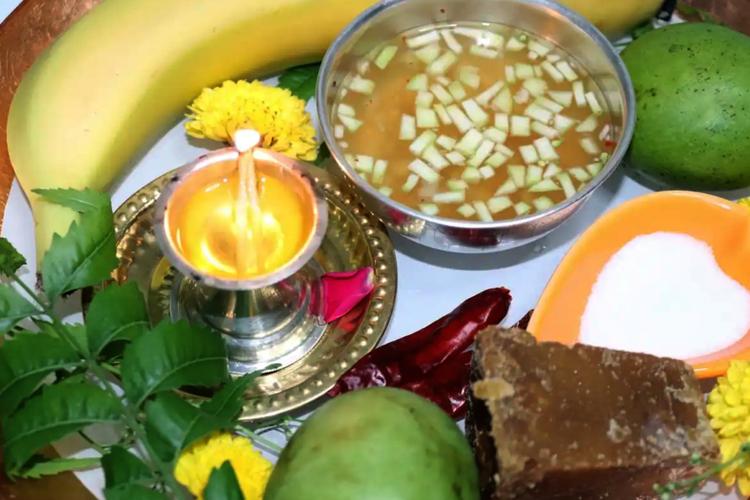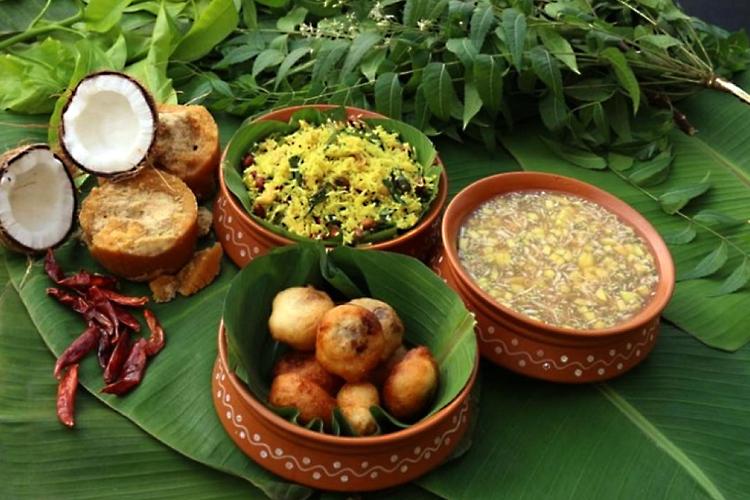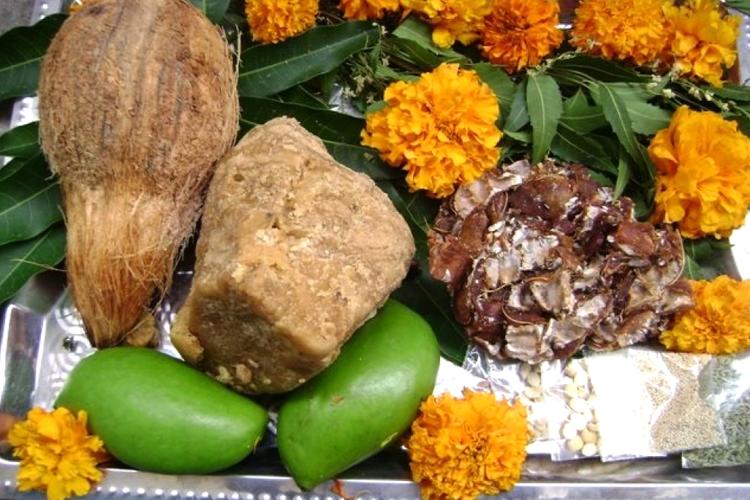Each region of India has its special way of celebrating its distinctive festivals. Some festivals are different from the other and some are just celebrated differently. But the essence remains the same and the devotion towards the Gods prevails. Ugadi in India is the New Year celebration festival that the people of Andhra Pradesh and Telangana observe with a lot of reverence. Ugadi is celebrated on the Chaitra Sukhla Padyami, the first day of the Hindu calendar. The day corresponds with the end of March or the beginning of April as per the Gregorian Calendar. This principal festival also marks the beginning of Spring, referred to as 'Vasant'. Since the festival is synonymous with feasting and gifts. This annual festival is a perfect time to be together with family and loved ones. The main aspect of Ugadi in India is to welcome the New Year with hope and optimism. People turn to their roots and follow traditions for the festivals from the early days of the festival. Houses are decorated with Mango leaves, Tora and the floors are adorned with rangoli designs to welcome Ugadi.
An age-old myth of Hinduism has an association with Ugadi. The legend says that Lord Brahma, the Supreme Creator, created the universe on this day. This marked the beginning of a new era or, in the native language, Ugadi. Another legend tells the story of Lord Ram. The legend states that Lord Ram returned to Ayodhya after his 14 years of exile on this day. He defeated evil and ushered in a prosperous era in India. The celebrations of Ugadi carry the same notion in the sentiments.
Ugadi is also believed to be the day when Lord Krishna left the world beginning the new age. This beginning of a new age has been described by Maharishi Vedavyasa as Yesmin Krishno Divamvyataha, Tasmat Eeva Pratipannam Kaliyugam. This marks the death of lord Krishan and the end of Dwapura Yuga which leads to the beginning of the Kali Yuga. It is believed that on this day Lord Brahma created the universe. He started by creating months, weeks, and days to keep a track of time. This festival is the only festival that is dedicated to Lord Brahma as it is believed that Lord Brahma succumbed to Moh Maya. This led him to lust over Goddess Saraswati, who was considered to be his daughter. This way he has sinned and as punishment Lord Vishnu cut off one of his four heads and Lord Shiva cursed him that he would never be worshipped by the people. Hence, he has fewer temples dedicated to him and few festivals that worship him.
As the festival is so distinct it is celebrated distinctly in different forms and with distinct rituals. They cook traditional meals to celebrate the festival with their families and friends. If you are curious as well to know more about the rituals in the different regions of India then your search has ended.
Ugadi is celebrated in every nook and corner of Telangana. Being New Year’s Day, this event is filled with several unique traditions followed in homes and public institutions. A very important part is the Panchanga Shravanam which refers to the reading of religious discourses. The texts are read at all temples as well as other religious functions by learned men who are well versed in these. Among the dishes of this day, the special chutney Ugadi Pachadi holds the most prominent position. This dish is prepared using various ingredients that include all five tastes and thus is symbolic of all the experiences that are a part of life.
The day starts with religious prayers. People wake up before the breaking of dawn to take a head bath, applying oil to their bodies. After having a bath, they engage in a house decorating activity. People consider mango leaves to be auspicious. Thus they use them as a major component in decorating items. According to a legend, Lord Ganesh, the God of prosperity is fond of mango leaves. Thus, welcoming the New Year and the Gods into their homes.
People wash their homes head into the day wearing fresh new clothes. They wear traditional clothes and including the dhoti. Rangolis are also drawn by women which are an important part of the traditional culture. It is also considered an auspicious mark of festivity. People hang tora made from mango leaves on doorways and windows.
Some rituals can be different but as mentioned earlier the essence remains the same. The festival is a very significant one and this binds together the family as well as the community together. With all the beliefs and mythology the vibrant festival brings new beginnings to life.




